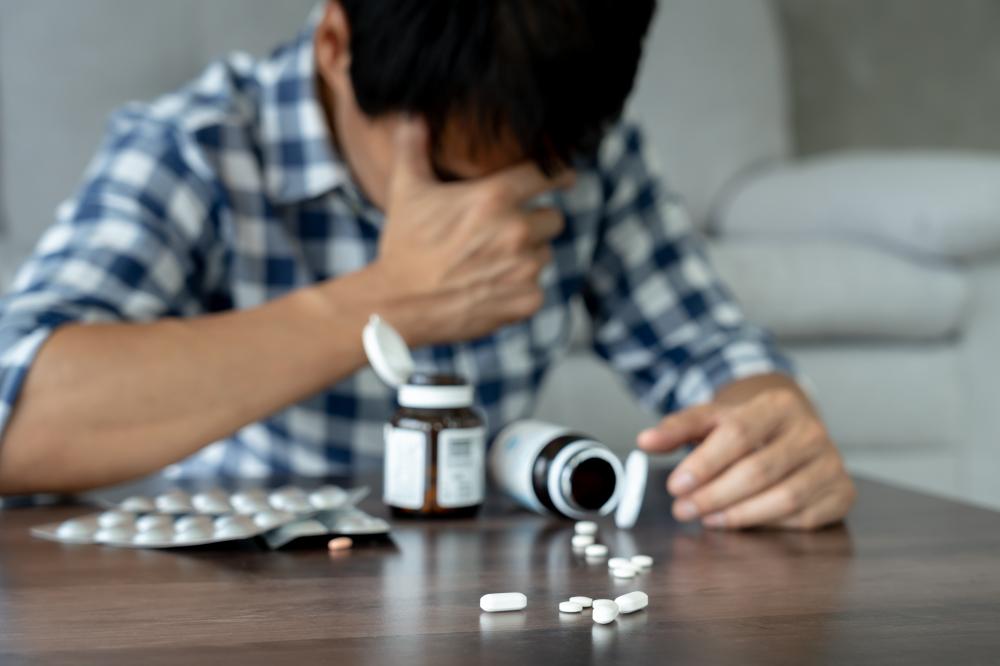
Help for Benzodiazepine Addiction
At Recovery Cove, we understand the intricate challenges that come with benzodiazepine addiction. These medications, while initially prescribed for legitimate medical concerns such as anxiety, insomnia, and seizures, hold a high potential for dependency and addiction. The journey towards dependency often starts innocently, with prescribed use, but can quickly escalate as tolerance builds, requiring more of the medication to achieve the same effects.
Signs of Addiction
Recognizing the signs of benzodiazepine addiction is crucial for early intervention. Some red flags include increasing dosage without medical guidance, experiencing withdrawal symptoms upon cessation, and the inability to stop usage despite the desire to do so. If you or someone you know is wrestling with these symptoms, it's time to seek professional help.
Treatment Approaches at Recovery Cove
At the heart of our Benzodiazepine Addiction Treatment Center Lehigh Valley, personalized care forms the cornerstone of our approach. We don't believe in one-size-fits-all solutions; instead, we tailor each treatment plan to meet the unique needs of our clients.
The Detoxification Process
Detoxification is the initial step in overcoming benzodiazepine dependency. It's a delicate process that must be conducted under medical supervision to manage withdrawal symptoms effectively and reduce potential health risks. Our medical team at Recovery Cove is highly experienced in providing a safe and supportive environment for detox.
Therapeutic Interventions
Following detox, our focus shifts to addressing the psychological aspects of addiction. We use a blend of individual and group therapy, cognitive-behavioral therapy, and other evidence-based practices to help individuals understand the root causes of their addiction and develop coping strategies. The goal is to empower our clients to handle life's challenges without reverting to substance use.
Holistic Healing
At Recovery Cove, we believe in treating the whole person, not just the addiction. Holistic therapies such as meditation, yoga, and art therapy complement our clinical treatments, aiding in stress reduction and emotional regulation. These practices offer a refuge from the chaos of addiction, nurturing both mental and physical well-being.
Family Involvement
The support of loved ones is invaluable in the recovery journey. We encourage family involvement through counseling and education, helping family members understand addiction and how they can offer constructive support. This inclusive approach fosters healing not just for the individual, but for their relationships as well.
Life After Treatment
Recovery doesn't end with the conclusion of a treatment program. It's a lifelong journey that requires continuous support and engagement. Our aftercare services, including alumni groups and ongoing therapy sessions, provide a safety net for our clients, ensuring they have the resources to maintain their sobriety and continue growing beyond our walls.
Success Stories
-
"Joining Recovery Cove was a life-changing decision. The comprehensive care and unwavering support have given me a second chance at life." - Monica
-
"The tranquil environment and caring staff made all the difference in my recovery journey. I felt seen, heard, and valued." - Meir
Community Education
Breaking the stigma surrounding addiction is a mission close to our hearts. Through our blog and community outreach programs, we aim to educate the wider community about addiction, its complexities, and the pathways to recovery. Knowledge is power, and by spreading awareness, we hope to foster a more understanding and supportive society.
Conclusion
The road to recovery from benzodiazepine addiction is fraught with challenges, but it's a journey you don't have to make alone. At the Benzodiazepine Addiction Treatment Center Lehigh Valley, our dedicated team at Recovery Cove is committed to providing the care, support, and guidance needed to overcome addiction and embark on a path to a fulfilling life. If you or a loved one is grappling with benzodiazepine addiction, reach out to us. Together, we can navigate the path to recovery.

What are the 3 types of Benzos?
At Recovery Cove, we frequently encounter three main types of benzodiazepines - the short-acting, intermediate-acting, and long-acting. Short-acting benzodiazepines, like alprazolam (Xanax), are often used for managing acute anxiety episodes due to their quick onset. Intermediate-acting ones, such as lorazepam (Ativan), strike a balance between onset and duration, making them suitable for a broader range of anxiety-related conditions. Long-acting benzodiazepines, like diazepam (Valium), are generally used for chronic anxiety disorders, as their effects last longer, reducing the need for frequent dosing. Each type has its place in treatment, but also its potential for dependency, highlighting the importance of careful, monitored use.
How long can you take benzodiazepines?
From our experience at Recovery Cove, the duration for which one can safely take benzodiazepines varies based on individual circumstances, but generally, short-term use is recommended. Ideally, usage should not extend beyond 2-4 weeks. This is due to the risk of developing tolerance, dependency, and potential withdrawal symptoms upon cessation. Some situations may necessitate longer use under strict medical supervision, with regular assessments to mitigate risks. If you're contemplating the duration of benzodiazepine use, it's crucial to have an open conversation with your healthcare provider.
What are the long term effects of benzodiazepines on the brain?
Long-term benzodiazepine use can have several effects on the brain, including cognitive decline, memory impairment, and potential development of drug tolerance and dependency. Studies suggest that prolonged exposure to benzodiazepines may interfere with the brain's normal processing and neurotransmission, leading to these adverse outcomes. In our work at Recovery Cove, we've seen how critical it is to address these effects through comprehensive treatment plans that focus on both the physical and psychological aspects of addiction recovery. Remember, the brain has a remarkable ability to heal with time, proper treatment, and support.
Is .25 mg clonazepam addictive?
Even at a low dose of .25 mg, clonazepam can be addictive, especially with long-term use. Its addictive potential lies in its ability to enhance the brain's response to GABA, producing a calming effect. This can lead to psychological and physical dependence. At Recovery Cove, we emphasize the importance of closely monitoring any benzodiazepine use and exploring alternative therapies whenever possible. Addiction is not defined by the dose but by the relationship one develops with the substance.
How does a holistic healing approach complement traditional addiction treatment at Recovery Cove?
Incorporating holistic healing approaches, such as meditation, yoga, and art therapy, complements traditional addiction treatments by addressing the mind, body, and soul. At Recovery Cove, we've found that blending these practices can significantly reduce stress, enhance emotional regulation, and promote overall well-being. This comprehensive approach fosters a deeper sense of self-awareness and resilience, which is crucial for sustained recovery. It's about creating a balanced and supportive environment where healing can thrive on all levels.
Resources
- Substance Abuse and Mental Health Services Administration (SAMHSA) - SAMHSA is a government agency that leads public health efforts to advance the behavioral health of the nation. They provide valuable resources on substance abuse and mental health treatment.
- National Institute on Drug Abuse (NIDA) - NIDA is a research institute that focuses on the science of drug use and addiction. They offer evidence-based information on drug abuse and treatment options.
- MentalHealth.gov - MentalHealth.gov is a government website that provides information on mental health issues, including substance abuse. They offer resources for finding treatment and support.
- Centers for Disease Control and Prevention (CDC) - The CDC is a leading national public health institute in the United States. They provide data and resources on various health topics, including substance abuse and addiction.
- National Institutes of Health (NIH) - NIH is the primary agency for conducting and supporting medical research in the U.S. They offer information on substance abuse and addiction research and treatment.






